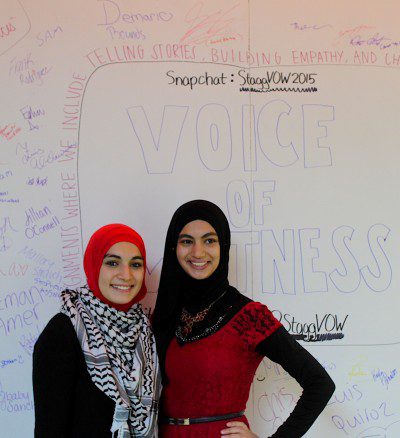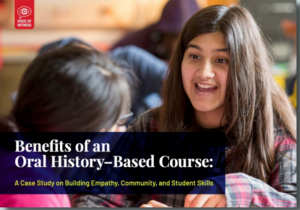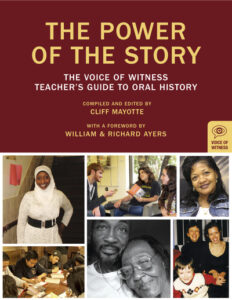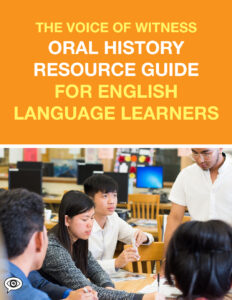In 2015, Voice of Witness (VOW) supported the creation of a yearlong course centered on oral history and ethical storytelling at Amos Alonzo Stagg High School. Since then, teachers Christopher Wendelin and Lisa Thyer have continued to teach and evolve this “VOW class” every year. (Read our recent case study highlighting the profound impacts of this course on students.)
This toolkit shares a collection of high-impact projects and assignments for educators interested in creating their own oral history units or classes. The toolkit includes a yearlong course timeline, as well as resources to support students in taking an empathy-based approach to reading oral history narratives and completing their own oral history projects. These lessons will help your students explore the following questions:
- How does oral history and first-person storytelling help us develop empathy, communication, and trust within our classroom and larger communities?
- How do we work ethically and collaboratively to create a collection of oral history narratives that speak to a common theme?
Grades: Flexible and adaptable for middle school and high school.
Time Needed: This toolkit is intended to provide a starting point for designing a yearlong course around oral history. However, individual lessons and projects can be taught separately.
Objectives:
- Students will develop an understanding of oral history as a practice, performing close readings and discussing its value in creating democratized counternarratives.
- Students will practice critical thinking, relationship building, question writing, and creating a safe and brave space for an ethical oral history interview.
- Students will transcribe and edit oral history narratives in a way that honors the narrator’s voice and tells a compelling story.
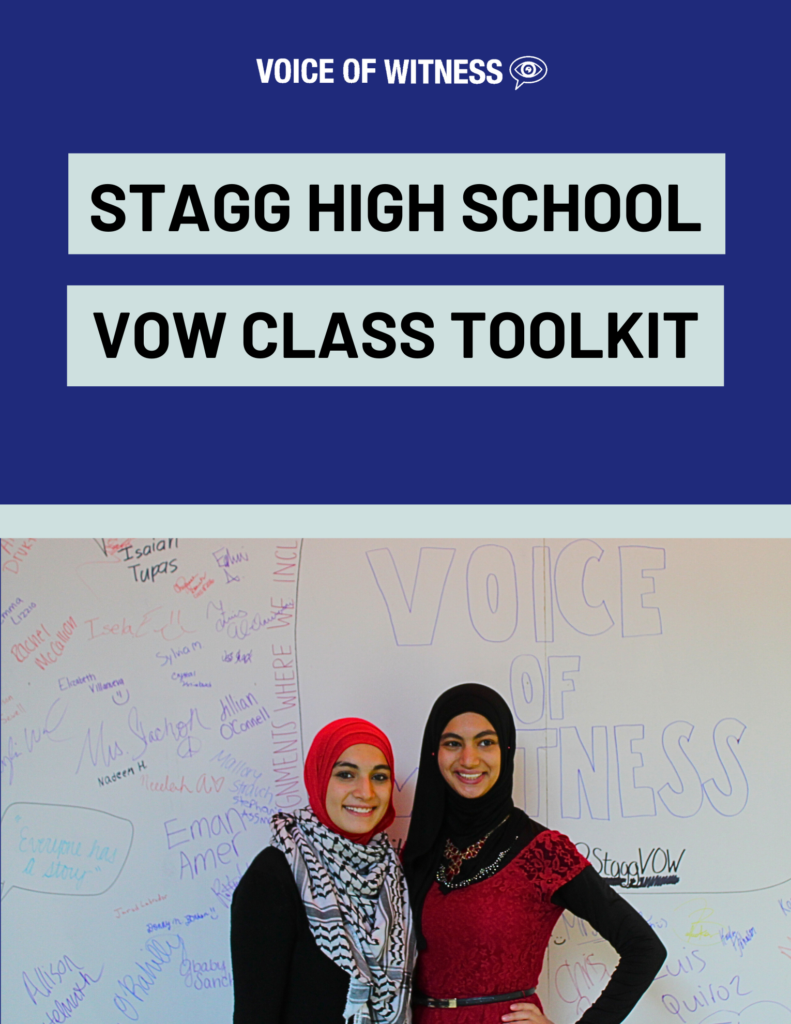
Download the Toolkit
* Required fields
Case Study: Evaluating an Oral History-based Course
We wanted to study the long-term effects on student learning of the long-running oral history-based course at Stagg High School. A survey and in-depth interviews were conducted with former students in an effort to measure the impact of the class. The resulting report, Benefits of an Oral History-Based Course: A Case Study on Building Empathy, Community, and Student Skills shares the findings of this evaluation.
